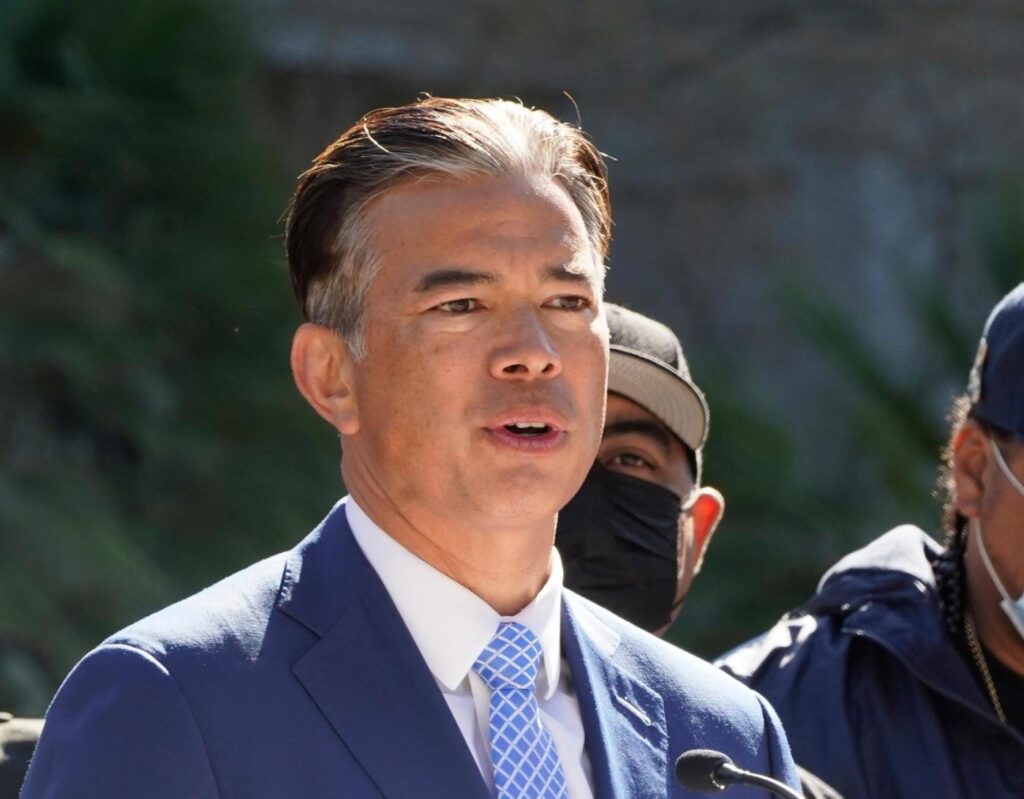
California lawmakers are fond of hyping themselves as the world leaders in energy policy. But that’s not enough for Sacramento. The ruling class wants the courts to make energy policy to fill in the holes the legislators haven’t yet been able to cover.
Last week, Gov. Gavin Newsom and state Attorney General Rob Bonta filed a lawsuit in San Francisco County Superior Court, suing a number of oil companies as well as the American Petroleum Institute for “creating, contributing to, and/or assisting in the creation of state-wide climate change-related harms in California.”
The lawsuit further alleges the “defendants created, contributed to, and/or assisted in the creation of a public nuisance, and harmed or destroyed natural resources,” and have “misled consumers and the public about climate change for decades.”
As a public relations campaign, the Newsom-Bonta legal challenge isn’t bad. More than a quarter of adult Californians say that climate change is “a top concern” and another 56% say it is “one of several important concerns for them personally,” according to a July Public Policy Institute of California poll. More than three-quarters, 77%, believe “climate change has contributed to the state’s recent extreme weather events.”
The poll also found that 61% figure that “stricter environmental laws and regulations are worth the cost,” while 68% “support efforts to protect the environment, even at the risk of curbing economic growth.”
Surprisingly, large majorities in the Central Valley (64%), Inland Empire (67%), and Orange and San Diego Counties (65%) are OK with risking economic growth for an outcome that would have no impact on the climate.
There might be some reconsideration, however, even in Los Angeles (71%) and the Bay Area (72%) if Californians knew just how much tighter environmental policies, including the financial drain caused by lawfare against energy producers, would cost them.
Pacific Research Institute senior fellow Wayne Winegarden reckons that the state suing energy providers will “impose large economic costs on families and businesses,” and when coupled with inflation, add up to a sum of basic expenses that “are simply unaffordable for most households.”
As ever, those hurt the most are the ones who can least afford price spikes.
Winegarden also expects that the lawsuits will inhibit economic growth. Potential judgments in these cases, his research found, could raise gas prices by 31 cents per gallon. It is a simple, straightforward calculation: higher energy costs are bridles on economic growth.
We see this happening in real time due to the disruption in global energy markets caused by the Russian invasion of Ukraine. It has produced “the biggest surge in crude-oil prices since the 1970s,” says the World Bank.
“The consequences for global growth will be significant: higher energy prices alone are likely to reduce global output by nearly 1% by the end of 2023.”
Don’t be underwhelmed by what looks like a low figure. A 1% decline is by no means insubstantial. Any reduction in economic output is a step backward. For instance, the Federal Reserve Bank of St. Louis tells us that “historically, a 1% decrease in GDP has been associated with a slightly less than 2-percentage-point increase in the unemployment rate.”
Related Articles
Newsom: Sign bill boosting coastal housing
Compromise will boost fast food costs
Reagan’s legacy on taxes: What to take, and what to leave?
John Stossel: Did you survive the budget cuts from the last debt ceiling fight?
The California Board of Registered Nursing must not vote to limit nursing school enrollment
Taking oil companies to court will also trip up innovation, especially of the sort Winegarden says “could end up meaningfully reducing the total amount” of greenhouse gas emissions. Only fully functioning markets can solve the inadequacies of storing energy from wind turbines and solar farms, or produce new fuel and engine efficiencies. If the economy is hobbled, then so is the development of cleaner energy.
Just because Sacramento is now enlisting the courts to implement energy policy doesn’t mean that lawmakers have given up on legislative schemes. Gov. Newsom has announced that he will sign the Climate Corporate Data Accountability Act (Senate Bill 253), which would require U.S. “companies with total annual revenues in excess of” $1 billion that do business in California to disclose their yearly greenhouse gas emissions. This too will add to the cost of doing business as companies will have no choice but to devote financial resources to an onerous bookkeeping task, and put more pressure on consumers, to whom costs will be passed on to.
That doesn’t matter, though, to those who make the rules. They just want to be sure, as the language of the bill clearly demonstrates, that California is recognized for “its leadership in the battle against climate change,” and is inspiring other states to take “bold actions” regarding energy policy. Appearances have a much higher priority than practical matters in Sacramento.
Kerry Jackson is a fellow with the Center for California Reform at the Pacific Research Institute.
